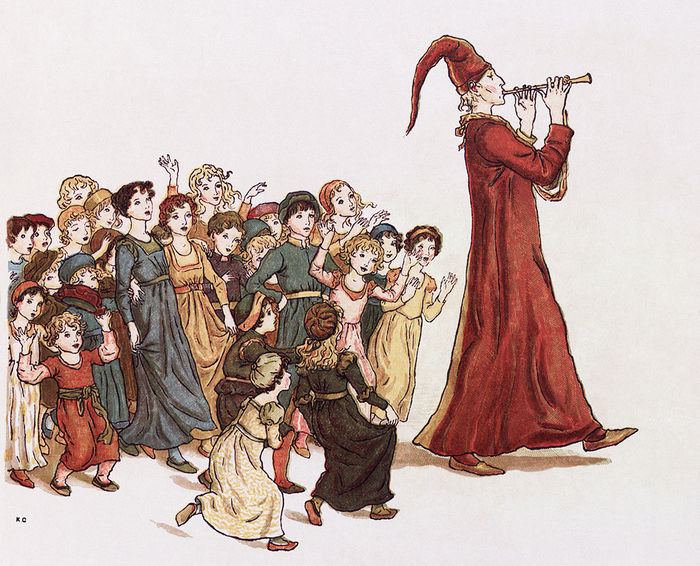Retracing Our Steps: ‘footprints’ of art in the everyday
From page margins to abandoned puppets, Loveday Cookson reflects on the ‘footprints’ of art in the everyday, a path well travelled along which we step closer towards ourselves

Steady trails of footprints –the weight of my shoes in long grass – I press my presence into the summer greenery as I traverse familiar countryside. Perhaps it’s the impact of our carbon footprints moving from abstraction into a grey reality, or the complete fantasy of online anonymity – but figurative footprints are imparting greater indents in us, leaving trails through which we can trace our impact. We are collections of notes scribbled in margins and boxes of family wedding photos, mosaics of everything from the mad to the mundane – all of our artistic endeavours are composites of the creative footprints left by others, just as ours become signposts in other people’s artistic adventures.
“We are mosaics of everything from the mad to the mundane”
A grandmother stands facing Christs, her grandson in hand as they marvel at the arresting gold gilding – while on a zebra crossing a discarded penguin puppet has been perched obscuring the crossing button like a felt Gandalf, guarding passage to the Hill colleges. I am forever primed, phone in hand to catalogue these moments – the tiny brushstrokes that in their masses create our experiences of art. I can trace myself in all the things I have collected; my town’s antique shop is selling a typewriter upon which others have tapped out their favourite jokes, while my grandmother’s inscribed first editions of Larkin’s poetry, a birthday gift from my grandfather, may go some way to explaining my degree choice. I ferry back and forth each term a postcard I found lodged in a book about Renaissance botany, scribbled in excitement are the sender’s summer plans and hopes for second year; the book holds both the answers to my weekly essay and irreplaceable expressions of unabridged joy. These pieces left by others become iterations of ourselves; they are the footprints we walk in and the ones that may be a step in someone else’s path.
“These pieces left by others become iterations of ourselves”
In South Africa scientists have discovered human footprints dating back over 150 000 years ago, while in Croatia, mediaeval manuscripts are adorned with feline irreverence, paw prints interspersing the delicate ink strokes. I yearn to know more, unsatisfied by snatches of steps; I attempt to press into the muddiness of these tales my own solutions and paths to understanding.
The majority of people when given a pen to test will write their name – at first this may seem taciturn, the most uninspired use of ink and possibility, but I think these are our footprints, traces of ourselves we leave online or in stationery shops. Writing can often feel disjointed, sewing together disparate phrases, hemming them to fit a word limit; yet each word is the remnants of a book we have read or conversation shared with friends, embedding itself in our journey through language. Plath’s fig tree knowingly “winked” at me – offering a solution to the teenage crossroad of degree subject decision making, while the fig dish I bought from a charity shop houses my college ‘engagement’ ring.
I gather up these pieces and fashion them into something new; maybe this too will be pulped and churned out into a medium for someone else to use. Or maybe it will lie discarded like the hanging punchline to the typewriter jokes, ready to be discovered like paw prints on pages. The anticipation of dusted cobblestone littered with the remains of Michaelmas snow creeps ever closer, promising footprints patterned across dark Cambridge streets.
 News / Cambridge academics stand out in King’s 2026 Honours List2 January 2026
News / Cambridge academics stand out in King’s 2026 Honours List2 January 2026 Interviews / You don’t need to peak at Cambridge, says Robin Harding31 December 2025
Interviews / You don’t need to peak at Cambridge, says Robin Harding31 December 2025 Comment / What happened to men at Cambridge?31 December 2025
Comment / What happened to men at Cambridge?31 December 2025 Features / “It’s a momentary expression of rage”: reforming democracy from Cambridge4 January 2026
Features / “It’s a momentary expression of rage”: reforming democracy from Cambridge4 January 2026 News / AstraZeneca sues for £32 million over faulty construction at Cambridge Campus31 December 2025
News / AstraZeneca sues for £32 million over faulty construction at Cambridge Campus31 December 2025










